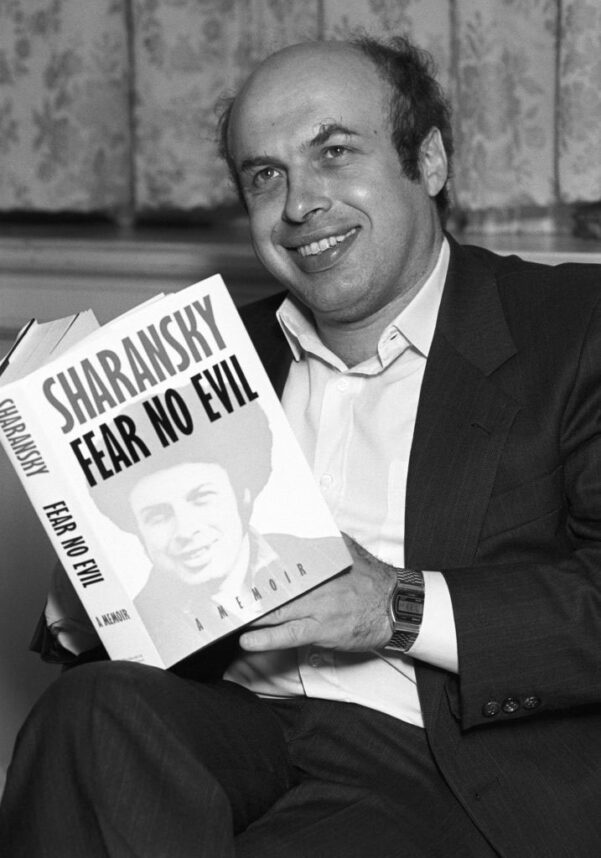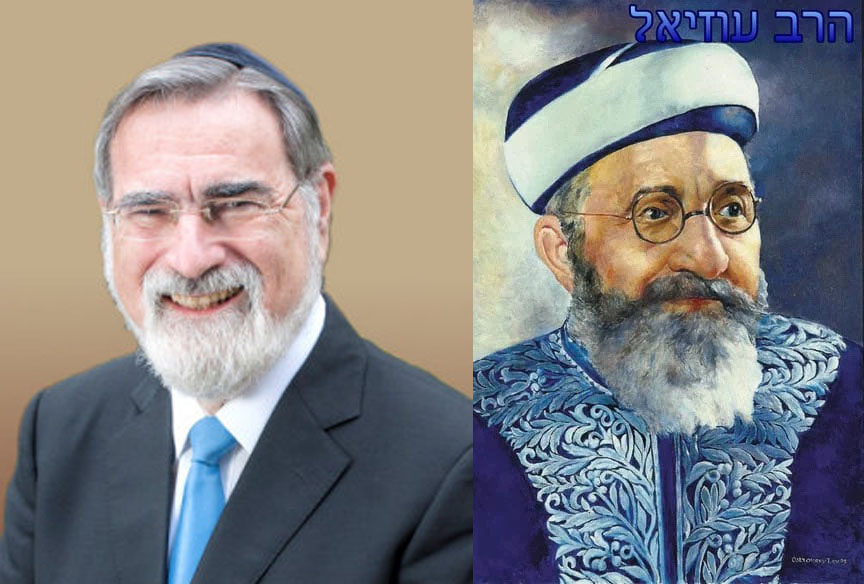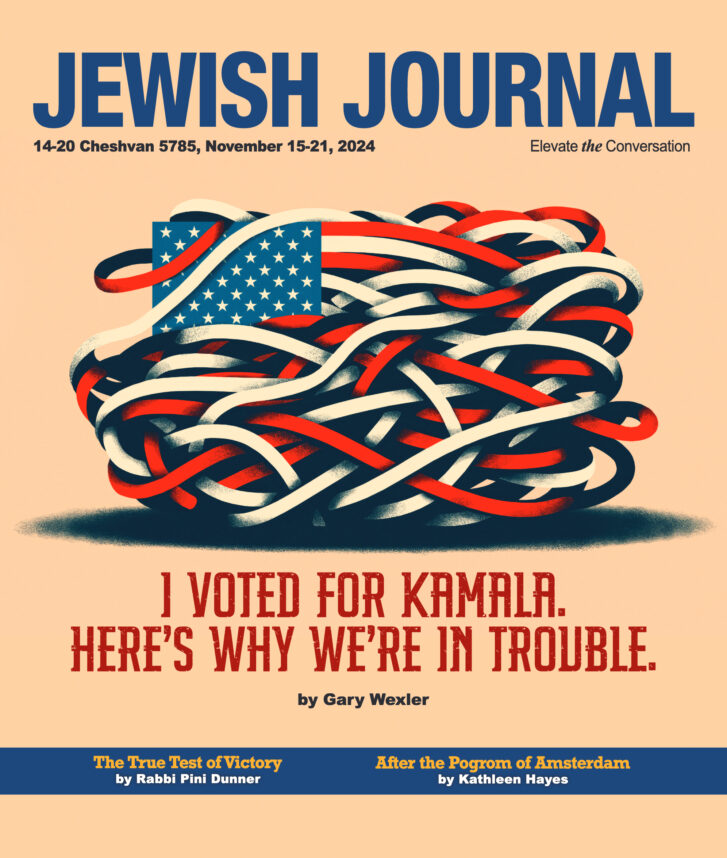I made a pact with a Columbus area rabbi: I can ask any question and quote any answer, as long as I don’t give his identity away. Not a hint, not a clue. Is it not problematic for a Jew in America to have such a fear of exposing his political beliefs? I ask him. The rabbi laughs. “You realize”, he says, “that my so-called fear has nothing to do with non-Jews – it is the Jews that I fear”.
He then asks if I read Roger Cohen’s article about The Jews of Cuyahoga County, which, of course, I did. The rabbi didn’t like Cohen’s use of the word “ugly” at the outset of his article (“Things are getting ugly among the Jews of Cuyahoga County, with family splits and dinner invitations declined”), but gives the impression that at times things are becoming, well, ugly. Not for all Jews in Cuyahoga of Columbus, not in all families. But in some cases it is – hence the rabbi’s obsession about not wanting to be exposed.
“If I get into political issues I’m definitely going to alienate some people from one side or the other, and more likely from both sides”. These are days of tension and bickering and highly partisan spirit. These are days in which “hardly anyone can see both sides’ arguments”.
Read Part 1 of Shmuel Rosner's Ohio Diary here
All Jews would like to think that they are in a position to be decisive in the 2012 election. But for the Jews of Ohio such a belief might not be as preposterous as it is for most other American Jews. And if the coming election is very, very close – as many believe it might be, and if the decisive state is Ohio – as many also tend to believe, then the Jews of Ohio might be right (reminder to readers: you have three more days until Election Day to read my book: The Jewish Vote: Obama vs. Romney / A Jewish Voter’s Guide).
Media reports certainly encourage Ohioan Jews to believe that their vote counts even more than usual. “Does all this matter? Yes it does”, writes Cohen.
“In an election that everybody expects to be very close, suddenly 20,000 Jewish votes may actually be very important”, American Jewish historian Jonathan Sarna told Bloomberg. And naturally, the Jewish press makes the Jewish vote even more crucial. “The Jewish vote could be the deciding difference if it is more Republican than usual”, Herb Weisberg, a professor of political science at Ohio State University, told the Jewish Week of New York.
Of course, the evangelical vote will be much more important that the Jewish vote. And the suburban vote, and the women's vote, and almost every other vote one can imagine. In the 2008 election, 30% of the Ohio vote was evangelical, and Obama carried the state. But this time, “if the share of the evangelical vote increases by a point or two, then the challenger could carry the Buckeye State”, as Ralph Reed, the president of the Faith and Freedom Coalition, told the Wall Street Journal.
Could such a small change in the Jewish vote have such an impact? That depends on one's definition of “change”. The Jews of Ohio make up less than 1.5% of the population and about 3% of the vote. Judging by the recent AJC survey of Jewish Ohio voters, Romney is likely to get 30% of the Jewish vote in the state, perhaps a little more (if more Jewish undecided break his way). That’s 5-10% more than the percentage of Jews voting for McCain in Ohio in 2008.
Do the math: 150,000 Jews in Ohio (1,500 Jews is 1% of the Jewish vote). This means that Romney could possibly get 7,500-15,000 more Jewish voters than McCain. Now think: Is it possible that the Ohio election would be determined by 7,500 votes? Yes, it is. Is it probable? Not as much. And again, if Jews are 3% of the vote and Evangelicals are 30% of the vote – this really means that 1% change in the evangelical vote (or, more likely, larger evangelical turnout), is as good as a 10% change in the Ohio Jewish vote.
Having met and interviewed 20-30 Ohioan Jews in the last couple of days, I can’t reliably tell you how the vote will break Tuesday. It is easy to find Obama voters (“is there even an alternative?” one Cleveland resident asked me), and is not very hard to find Romney voters (the easiest way: look for the Orthodox shul and the kosher deli), and occasionally one finds the 2008-Obama-disappointee (I found one carrying a Romney sign on the corner of Powell and South Cassady avenues). But truly, it is easier finding people who claim to know people that are disappointed with Obama. “Yes, I have some friends that voted for Obama in 2008 and are now voting for Romney”, Jerry Mayer told me. Stewart Ain got a better quote from Jewish Ohioan Bret Caller: “I’ve had dozens and dozens of Jewish friends who voted for Obama in ’08 say to me that they are on the fence and will make a decision in the voting booth”.
In my book, I begin chapter two with a story of a debate in Cleveland more than four years ago: “It was a sunny, breezy Sunday afternoon in the Beachwood suburb of Cleveland when two panelists took the stage to represent the two Democratic candidates in a debate aimed at the Jewish community of the area”. Congressmen Adam Schiff of California represented the Obama camp; the now infamous former Congressman Anthony Weiner of New York spoke for Clinton.
“It was an entertaining debate”, I wrote in the book, “as entertaining as it was duplicitous, especially on issues related to Israel. Obama, bragged Schiff, speaks his mind, whoever the audience might be. He, Schiff, was representing a truth teller. That may be so, but the same could not be said about Obama’s surrogate – Schiff”. When Schiff was asked: Does Senator Obama oppose Jewish settlements in the occupied territories? “[T]he Obama representative seemed to prefer caution to candor”. Obama, he assured the crowd, “had never criticized the settlements as being the obstacle to peace. Nor would he”.
And Weiner was no better than Schiff. “When asked to explain Clinton’s settlement policy, Weiner calmed the apprehensive Cleveland Jews with two promises: one, that Clinton would always respect the judgment of Israel and its citizens, and two, that she would move the American embassy to Jerusalem, something her husband, President Bill Clinton, did not do”.
I was reminded of this excerpt as I was reading a Tablet report on an event that I was unable to attend: Jack Lew, for Obama, vs. Tevi Troy, for Romney. Not that these two would be nearly as dishonest as the Obama-Clinton surrogates of 2008. Lew and Troy, after all, are administration professionals not veteran politicians. Nevertheless, Lew’s contention that Obama has “spent more time with Prime Minister Netanyahu than he has with any other world leader” (nominally true), does sound somewhat manipulative. As was Troy’s attempt to imply that in the Obama years, “the United States is not defending Israel”. And I must say that many of the Ohio Jews I have met in recent days tend to think about Obama and Romney in the same dichotomist manner. Obama is “an enemy of Israel”, an irate Rob Gold told me. Romney will “ban all abortions”, a weary Bev (or maybe Deb; please forgive my insensitive Israeli ears) Hart explained knowledgeably.
Being a voter with so much responsibility is not easy. Getting it right is not easy either. Maybe that’s why my friend the rabbi is so coy about his observations and choices. “I really hope that a couple of weeks after this is settled” – when the next president is elected and is sworn in – “the Jews in this community can have a conversation about Obama and Romney that is not as emotional”, he says.
Can such thing really happen? He isn’t sure. “That depends on the policies of the next president”. In other words: All that is going to happen in the coming months is a shift from the “you-must-be-kidding-you-can’t-seriously-consider-voting-for-this-guy” debate to the “I-told-you-he-was-going-to-be-a-disaster” one.
Read Shmuel Rosner's Florida Diary: Part 1, Part 2, Part 3, Part 4, Part 5 and Part 6
Follow Shmuel Rosner on Twitter and Facebook for facts, figures, analysis and opinion in the run-up to the election
Check out Rosner's new book, The Jewish Vote: Obama vs. Romney / A Jewish Voter's Guide






















 More news and opinions than at a Shabbat dinner, right in your inbox.
More news and opinions than at a Shabbat dinner, right in your inbox.